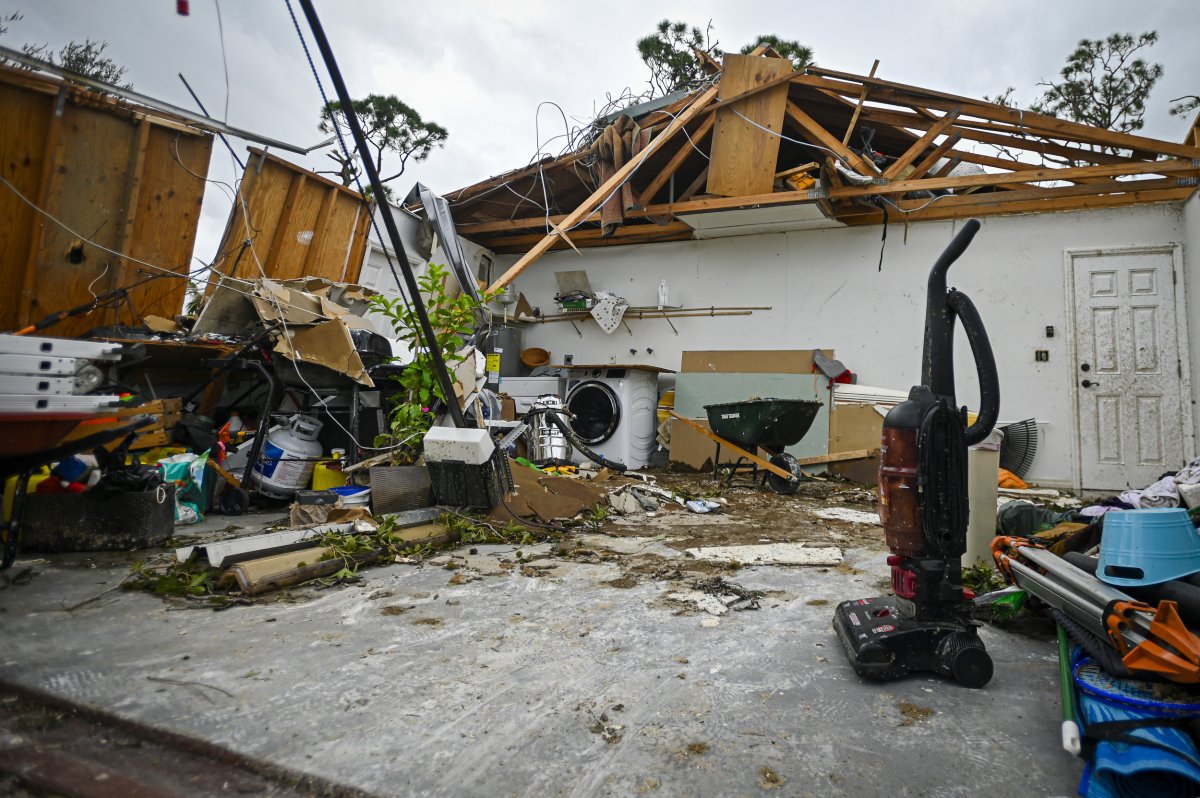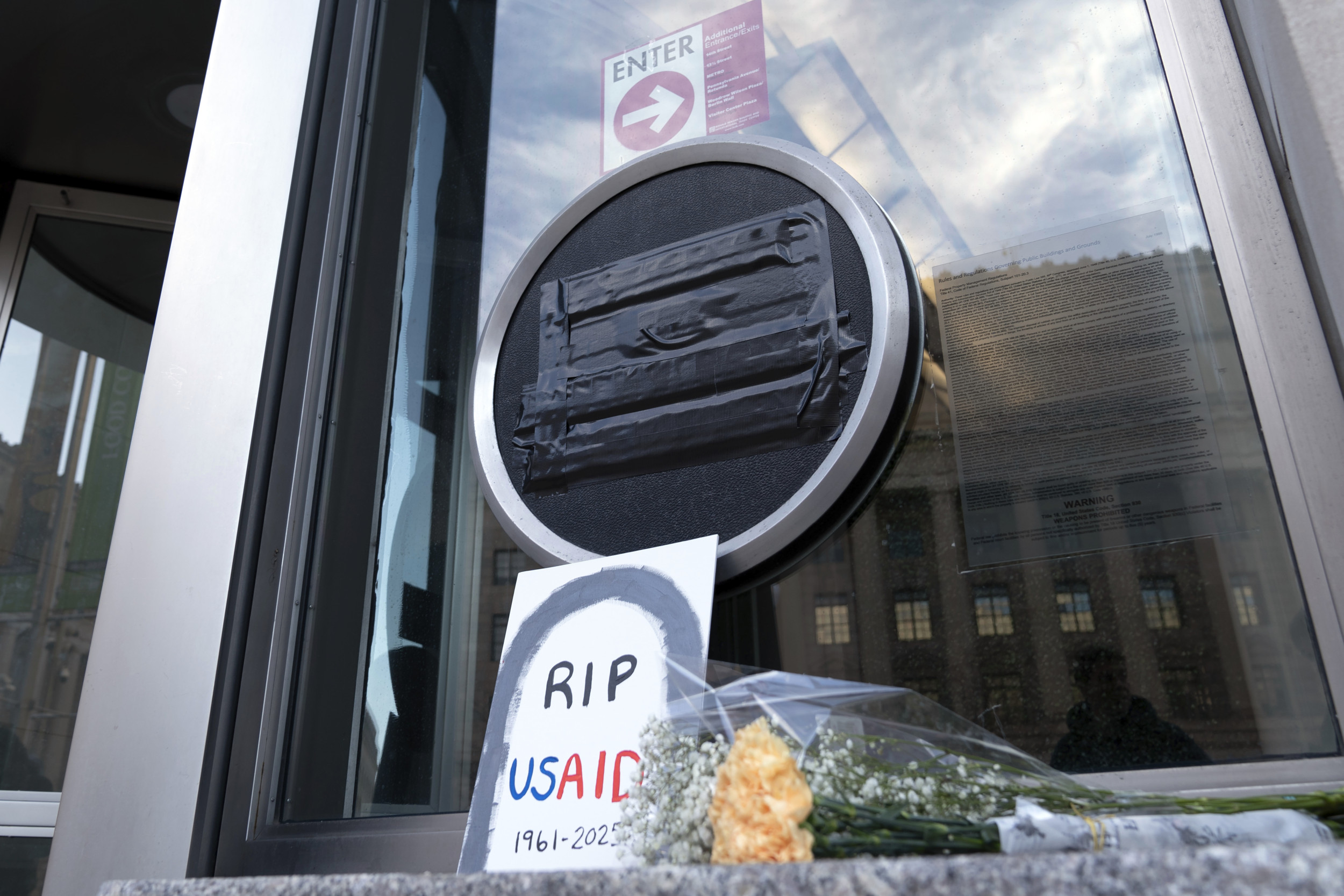As Florida homeowners recover from years of skyrocketing insurance premiums and coverage cuts, a new study report obtained by the Miami Herald and Tampa Bay Times revealed on Saturday that Florida insurers sent billions to affiliates while claiming to be losing money in the wake of hurricanes.
Newsweek has reached out to Florida's Office of Insurance Regulation via email for comment on Sunday.
Why It Matters
Insurance has been a major issue in the Sunshine State in recent years, as hurricanes and storms have had a devastating impact.
This comes as several major insurers cut coverage across Florida or withdrew from the state entirely in the past few years, citing increasing costs and growing catastrophe exposure. A combination of excessive litigation, widespread claim fraud and the growing risk of more frequent and severe natural disasters contributed to create a perfect storm that plunged the state's property insurance sector into a crisis.
What To Know
According to a 2022 study report, that has never been made public and was released to the Miami Herald and Tampa Bay Times after a two-year public records request, revealed that Florida's homeowners insurance market companies claimed financial ruin following Hurricanes Irma and Michael.
However, the report suggests those hardships were overstated as their parent companies and affiliates were raking in billions. Between 2017 and 2019, as the state's insurance market began unraveling in the wake of the back-to-back hurricanes, insurers justified steep rate hikes by citing mounting losses due to the storms.
The report reveals how insurers paid out $680 million in dividends to shareholders while simultaneously funneling billions to affiliated companies.
The report also showed between 2017 and 2019, the insurers in the study showed a net loss of $432 million and their affiliate companies showed a net income of $1.8 billion. With all 53 companies included, the industry recorded $61 million in net income, and affiliates made about $14 billion in net income.
According to the study's author, Jan Moenck, executives with most Florida-based insurers were removing so much money from their companies that they violated state regulations and as a result left some insurers financially weak to pay out claims.
Despite these findings, the report never reached state lawmakers, according to the Herald. The Office of Insurance Regulation said in a statement that the study was not given to lawmakers because it was "not a formal examination report."
"Our office does not release every internal analysis of companies to the Legislature," the office said, per the Herald.
Since the study's release, there has been no follow-up investigation, despite Moenck's recommendation for continued oversight. However, according to the Herald, state regulators say the insurance market is different in recent years, noting Florida's Insurance Commissioner Mike Yaworsky's push for more oversight.
The study comes after Yaworsky announced earlier this month that a new property and casualty (P&C) insurer, Mangrove, was approved to operate in the state. The company joins 10 others which have received regulators' green light to enter the state's market since Florida legislators passed a series of reforms to stabilize the state's property insurance market in 2022-23.
Mangrove plans to assume tens of thousands of policies from Citizens, Florida's state-backed insurer of last resort. The move could successfully help depopulate Citizens, which has ballooned in size over the past few years, raising concerns among experts and legislators.
This year should also see the beginning of the partnership announced by Embark MGA and Security First Insurance in late December 2024. The two companies are working on the launch of a program which will integrate insurance quotes into the homebuying and mortgage qualification process, making it easier for buyers to get coverage while purchasing a property.

What People Are Saying
Doug Quinn, executive director of the watchdog American Policyholder Association, told the Miami Herald: The findings are a "smoking gun" that confirms what has long been suspected in Florida's market.
"These companies are crying poverty in order to raise premiums or justify insolvency: 'It's litigation, it's fraud. This is money shifting from their left pocket to the right, and crying poverty while their right pocket bulges."
Mark Friedlander, director of corporate communications at the Insurance Information Institute (Triple-I), previously told Newsweek: "The Florida property insurance market showed vast improvement in 2024 due to recent legislative reforms that addressed the man-made factors which caused the state's risk crisis: legal system abuse and assignment of benefits claim fraud. The industry's improved financial condition enabled it to effectively weather a very active Atlantic hurricane season, which saw three Florida landfalls—Debby, Helene and Milton."
Florida's Insurance Commissioner Mike Yaworsky said earlier this month: "We are working hard every day to recruit more insurers to our state. Thanks to recent historic legislative reforms, Florida's insurance market is stabilizing and more companies are entering the market."
He added: "Domestic companies reported more than $389 million in net income as of September 2024. We will continue to emphasize the encouraging signs of the resilience and growth of our market to attract more business to our state."
What Happens Next?
While it's unclear if state lawmakers will bring any action following the release of the study, it comes after Florida legislators already passed a series of reforms to stabilize the state's property insurance market in 2022-23.
Friedlander previously told Newsweek that no significant legislative actions are needed in 2025 to address property insurance.
"We expect consumers will be able to reap the benefits of a competitive and healthy private insurance marketplace this year," he said. "Any attempts by lawmakers to roll back legislative reforms passed in 2022 and 2023 regarding lawsuits would be detrimental to the marketplace."




















 English (US) ·
English (US) ·